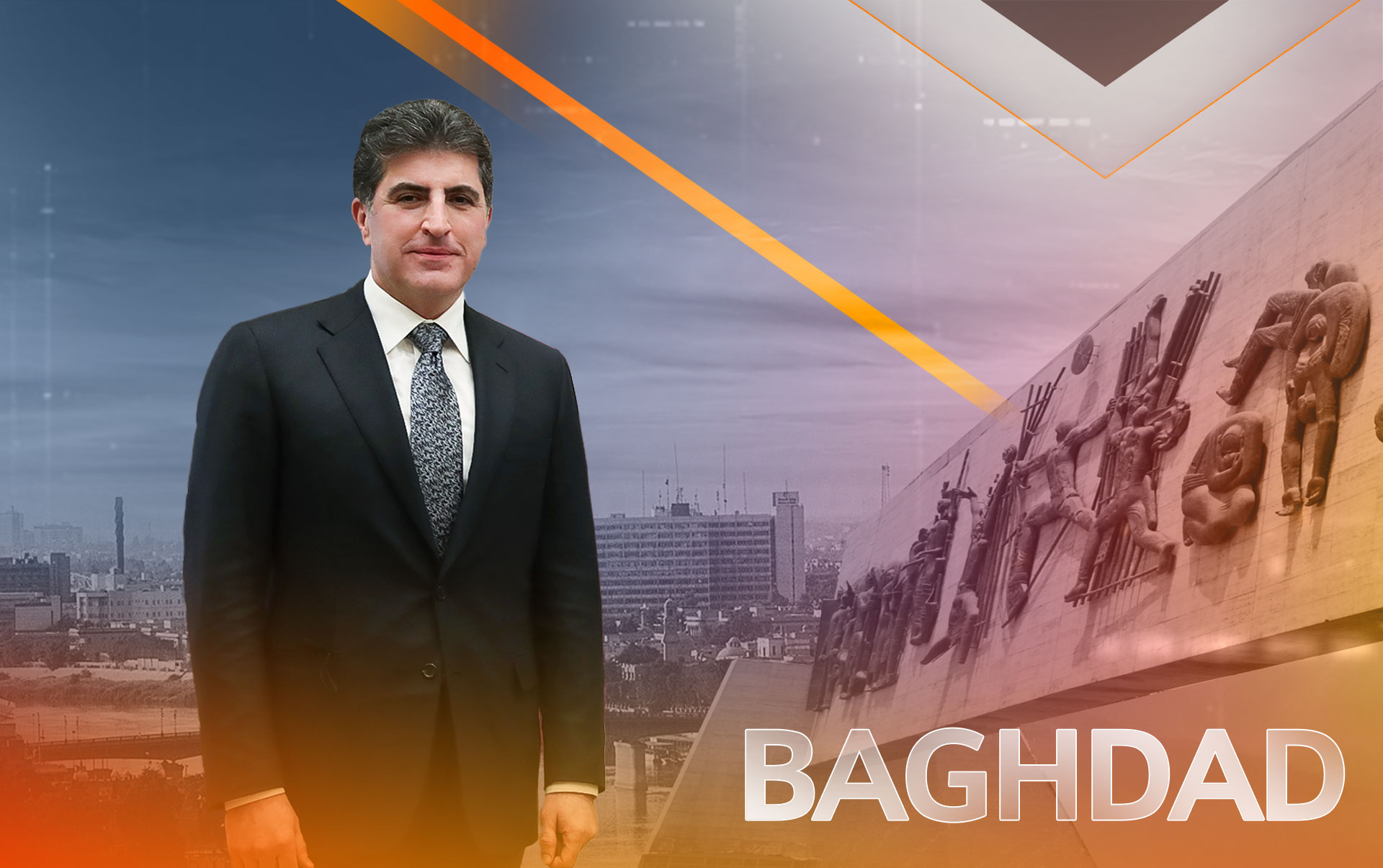While the nascent Iraqi government is merely weeks old, the visit of Kurdistan Region President Nechirvan Barzani to Baghdad could be seen as routine. Nevertheless, Barzani's visit could underscore his endorsement for the newly appointed Prime Minister, and serve as an affirmation of his pivotal role in rallying his parties to align with the Coordination Framework, thereby facilitating the emergence of this government. Beyond the bilateral relations, recent security impediments attributable to the ongoing Iranian attacks deep within the Kurdistan Region—following continuous domestic protests in Iran—might illuminate Barzani's negotiations and meetings in Baghdad.
Barzani's Visit Amid Iranian Attacks
According to available information, an informal guarantee exists that Shiite armed groups will refrain from attacking Erbil for at least a year. Yet, the extent to which Sudani can safeguard Erbil from drone and missile strikes originating from within Iraq—potentially orchestrated by Hezbollah, who are not part of the government—remains uncertain. The primary concern currently, however, centers on those attacks from Iran and Turkey. While Turkey's bombardment of the Kurdistan Region's borders does occur, its impact on Erbil's stability is less severe than the direct Iranian strikes on cities. In less than ten days, Iran initiated three attacks on Kurdistan Region territory, following a broader assault on September 28.
As large-scale demonstrations in eastern Kurdistan escalate, the Iranian government has heightened both domestic and foreign tensions. On the international front, Iran executed military drills on the Armenia-Azerbaijan border, intensifying conflicts with Azerbaijan President Ilham Aliyev. Iranian officials have also issued repeated threats towards Saudi Arabia and other nations, including Britain. In this vein, they have cited the presence of eastern Kurdistan parties as justification for their barrage of airstrikes on the Kurdistan Region.
Barzani's trip to Baghdad coincided with the Iraqi parliament's decision to address violations of sovereignty and a Kurdish agreement to settle unresolved issues. The presence of these parties in the Kurdistan Region has been a governmental focus since the Adel Abdul-Mahdi administration. In less than a month, Mohammed Shia has thrice emphasized that "our land should not be used as a platform to attack other countries," a sentiment echoed by the Iraqi foreign minister. This stance bolsters the claim that "neighboring countries should not be threatened by Iraqi territory." It may suggest their acceptance of at least some of Iran's justifications, even though a divergent viewpoint exists in the Kurdistan Region. East Kurdistan's forces have ceased their armed struggle against Iran for over three decades, with the Kurdistan Region President remarking,
"We see no excuse for launching missiles and drones on the Kurdistan Region."
Kurdistan Region President
In essence, this implies a rejection of Iran's pretexts for its attacks. Barzani will likely strive to find common ground with Baghdad's leaders to address an issue that could imperil Erbil's security and negatively influence the economic conditions and stability of the Kurdistan Region.
The Visit's Underlying Implications
Primarily, Barzani's visit might aim to settle outstanding Kurdish positions in the government, which remain unfilled due to disputes between the PUK and the KDP. The secondary objective could be the pursuit of pre-government formation promises made to the Kurds. Kurdish officials' statements signal optimism that Sudani will fulfill his commitments. In a week, Mohammed Shia's government faces its first test of promised fidelity to the Kurds, pursuant to Article 15 of Sudani's ministerial agenda. This requires the Supreme Committee of article 140 (Disputed areas) to be reactivated within a month of the government's formation and the financial dues of those encompassed by the Supreme Committee's decisions to be paid.
Per Shia's ministerial agenda, the government will refrain from acting on the operations of oil companies in the Kurdistan Region until the oil and gas law is enacted within six months. This measure is intended to prevent tension between the two sides. Yet, simultaneously, the Sudani government's stance concerning Iraq's complaint against Turkey in an international arbitration in France could potentially strain Erbil-Baghdad relations.
The Iraq budget may also be currently at stake as, according to the agenda, the Kurdistan Region might be involved in budget preparation; otherwise, the majority of other issues and promises are slated for resolution within six months.
Although Kurdistan Region President Nechirvan Barzani's visit may appear ordinary, especially in light of the newly formed government, the timing—following recent Iranian airstrikes—points to a crucial security and political issue potentially playing a significant role in Baghdad negotiations. The Kurdistan Region might aspire to legally address this issue, which, if agreed upon, could encompass the presence of all other Kurdish parties—a move that Baghdad has pursued since 2018.
Barzani's visit may also relate to Sudani's promised governmental commitments to the Kurds. Yet, given Iraq's present circumstances, fulfilling these promises proves difficult. Furthermore, the preponderance of meetings with prominent leaders in the Coordination Framework may highlight the Iraqi Prime Minister's incapacity to independently make decisions.



